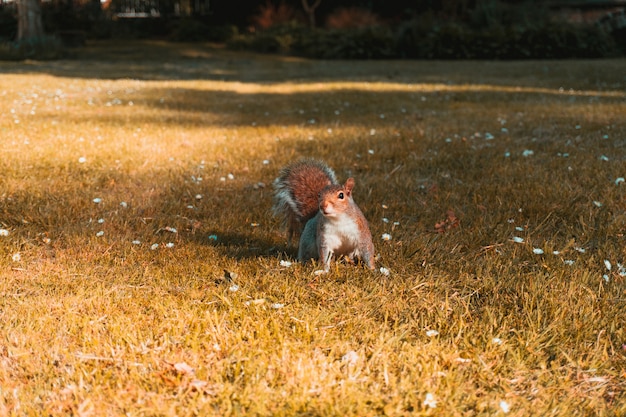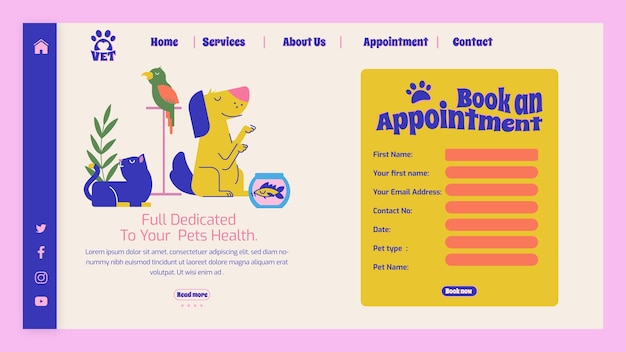Managing Pet Allergies During Northlake’s Humid Fall


Managing Pet Allergies During Northlake’s Humid Fall
As the heat of summer gives way to Northlake’s humid, lingering fall, many pet owners notice their dogs or cats start to scratch, lick, or sneeze more than usual. If your pet’s comfort seems to shift with the seasons, you are not alone; the local climate in Northlake and surrounding communities often brings a spike in allergy symptoms for pets. The team of veterinarians at Canyon Falls Veterinary Hospital understands how distressing it can be to watch your companion struggle with itching or discomfort. This blog explores why pet allergies in fall are so common in our area, how you can recognize symptoms, and what practical steps you can take to keep your pet comfortable. You will also learn how our modern hospital at 7251 Canyon Falls Dr, Suite 201, Northlake, TX 76226 supports families through comprehensive diagnostics and preventive care programs. If you are searching for a partner in managing pet allergies Northlake, or need guidance from a “vet near me,” this guide is for you.
Recognizing Pet Allergies in Fall: Symptoms Every Owner Should Know
It can be heartbreaking to see a pet constantly scratching, licking, or biting at their skin, especially when these habits seem to worsen as fall approaches. In Northlake, the combination of humidity and seasonal allergens can trigger a wide range of symptoms in both dogs and cats. Common signs of pet allergies in fall include persistent itching, frequent licking of the paws or belly, red or inflamed skin, sneezing, watery eyes, recurring ear infections, and even hair loss in severe cases. Some pets may develop hot spots or areas of raw, irritated skin that are especially uncomfortable. Additionally, you may notice changes in your pet’s behavior; pets who are suffering from allergies often become restless or seem irritable due to constant discomfort.
It is important to remember that these symptoms can be caused by a variety of issues, not just allergies. For example, skin infections, external parasites, or even underlying medical conditions may present with similar signs. If your pet shows any of these symptoms—especially if they persist for more than a few days or seem to worsen—it is time to schedule an appointment with your veterinary team. Early recognition is crucial for effective management and preventing further complications.
Why Do Pet Allergies Flare Up in Northlake’s Humid Fall?
Many pet owners wonder why their companion’s allergies seem to intensify as Northlake transitions into fall. The answer lies in the unique combination of environmental factors that characterize our region during September and October. The high humidity, coupled with mild temperatures, creates an environment where molds, pollens, and dust mites thrive. Ragweed and other late-blooming plants release significant amounts of pollen, which easily become airborne and settle on your pet’s fur and skin.
In addition to environmental allergens, increased time spent indoors as the weather cools can expose pets to indoor triggers such as dust mites and mold spores. Some pets also develop sensitivities to certain foods or flea bites, which may become more noticeable during seasonal transitions. Dogs and cats with a genetic predisposition to allergies, or those with a history of skin sensitivities, are especially vulnerable during this time of year.
Understanding the specific triggers affecting your pet can be challenging. That is why our veterinarians at Canyon Falls Veterinary Hospital use advanced diagnostic tools, including in-house laboratory testing and digital imaging, to help pinpoint the cause of your pet’s discomfort. If you are curious about the types of pet diagnostic laboratory services in Northlake that can help identify allergens, our diagnostic lab services are designed to provide accurate answers quickly.
Professional Treatment and Management of Pet Allergies in Northlake
When your pet is suffering from fall allergies, finding relief is a priority. At Canyon Falls Veterinary Hospital, our approach to managing pet allergies Northlake combines advanced veterinary diagnostics with compassionate, individualized treatment plans. We start with a thorough examination to rule out other causes of itching or skin irritation, such as parasites or infections. Based on your pet’s history and clinical signs, we may recommend allergy testing, blood panels, or skin cytology to identify the underlying trigger.
Treatment options for pet allergies in fall involve several strategies. For pets with environmental allergies, regular bathing with hypoallergenic shampoos can help remove allergens from the skin and coat. Medications such as antihistamines or prescription anti-itch therapies may be prescribed to reduce itching and inflammation. In more severe cases, our veterinarians may suggest immunotherapy or specialized diets to address food sensitivities. For pets with recurring ear infections or skin lesions, targeted treatments and follow-up care are essential to ensure lasting relief. If your pet requires further diagnostics, our in-house digital radiology services and ultrasonography provide deeper insights into underlying health issues that might be contributing to allergy symptoms.
We understand that managing pet allergies Northlake is not a one-size-fits-all process. Our veterinary professionals work closely with you to develop a plan that fits your pet’s lifestyle, health needs, and your family’s preferences. Ongoing monitoring and regular check-ups are key to assessing your pet’s response to treatment and making adjustments as needed.
Preventing and Minimizing Fall Allergy Symptoms at Home
While professional care is essential for managing allergy flare-ups, there are practical steps you can take at home to minimize your pet’s exposure to allergens throughout Northlake’s humid fall. Bathing your pet with a veterinarian-recommended, gentle shampoo can help remove pollen, mold spores, and dust from their coat. Wiping your pet’s paws and belly after outdoor walks limits the amount of allergens tracked into your home. Keeping bedding and soft furnishings clean by washing them frequently in hot water helps reduce exposure to dust mites and mold.
Additionally, maintaining a clean indoor environment by using air purifiers and regularly vacuuming carpets can make a noticeable difference for allergy-prone pets. If your pet has a known food sensitivity, sticking to a consistent, hypoallergenic diet is important during the fall months when other allergens may already be triggering symptoms. Your veterinarian can recommend dietary adjustments or supplements that support healthy skin and immune function.
If you are concerned about behavioral changes related to allergies—such as increased irritability or restlessness—consider reaching out to our team for a behavior consultation. Sometimes, chronic discomfort can lead to anxiety or undesirable behaviors that benefit from a holistic management plan.
When to Seek Veterinary Care for Fall Allergies
Knowing when to seek veterinary help is crucial for your pet’s wellbeing. If your pet’s symptoms persist for more than a week, worsen despite home care, or are accompanied by secondary signs such as open sores, hair loss, or repeated ear infections, it is time to consult your veterinary team. Sudden swelling, difficulty breathing, or severe skin reactions require immediate attention, as these may indicate a more serious allergic response.
Canyon Falls Veterinary Hospital is committed to providing comprehensive care for pet allergies in fall and throughout the year. Our hospital’s modern diagnostic capabilities and compassionate approach ensure that your pet receives the personalized care they deserve. Scheduling an appointment for a wellness examination is the best way to identify problems before they become serious and to discuss preventive strategies tailored to your pet’s unique needs. If you have questions about pet diagnostics near me or need guidance on managing pet allergies Northlake, our veterinary professionals are here to support you every step of the way.
Supporting Your Pet’s Comfort: Next Steps and How We Can Help
Navigating pet allergies in fall can be challenging, but you do not have to face it alone. Recognizing the signs, understanding the unique triggers in Northlake’s humid climate, and taking proactive steps at home all contribute to your pet’s comfort and quality of life. At Canyon Falls Veterinary Hospital, our team of veterinarians is dedicated to helping families in Northlake and surrounding communities manage seasonal allergies with compassion and expertise.
If you suspect your pet may be struggling with allergies this fall, schedule an appointment with our veterinary team for a comprehensive pet exam and personalized treatment plan. Our hospital is committed to forming lasting partnerships with pet owners, offering preventive care and advanced diagnostics that address every aspect of your pet’s health. Searching for the best veterinarian near me or looking for quality veterinary services near me in Northlake? Your pet’s comfort and happiness is our top priority.
Contact our friendly team at (972) 559-9500 or visit us at 7251 Canyon Falls Dr, Suite 201, Northlake, TX 76226 to schedule your visit. For more information about wellness exams, explore our preventive care services. Together, we can create a comfortable, healthy fall season for your companion.
This blog is intended for informational purposes only and does not replace professional veterinary advice. If your pet is experiencing severe symptoms or you have specific concerns, please consult with your veterinarian promptly. For additional resources on pet allergies and seasonal care, visit the American Veterinary Medical Association at AVMA.org.





















